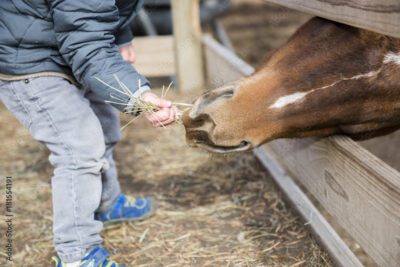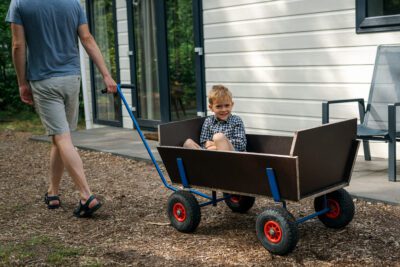By Christine Denise
Autism Mom and Contributing Writer for As You Are, a virtual clinic dramatically increasing access to early autism diagnostic services through the use of exclusively telehealth appointments
When our son who has autism was born, we knew something was wrong right away.
His autism diagnosis would come years later, but a genetic disorder was obvious from the get-go.
He wasn’t breathing on his own very well. He wasn’t eating. He wasn’t thriving.
By the time he was 2 months old, tests showed he had a chromosomal abnormality.
Getting that diagnosis – just like getting our autism diagnosis – told us the life we were about to have with him wouldn’t be anything like the life we expected.
He was our third child – arriving three years behind twin boys.
I not only mourned the life I had envisioned for my husband and I with him, but also mourned the life my older children would have with him, too.
Even at just 3 years old, they, too, had already started picturing a life with a little brother to rough up, play ball with and teach how to play with toys.
As our lives continued, I began to see my older children develop a beautiful relationship with their little brother – one more special than most kids have with their younger siblings.
Learning from Each Other
My son who has autism has learned so much from his older brothers, and they from him, too.
Early on, my son’s occupational, physical and speech therapists would tell them how they were not only Louie’s brothers, but they were his therapists, too.
The time they spent pushing him in a stroller or on a swing, jumping together on a trampoline, hanging side-by-side on monkey bars with him seemed like playtime for the three of them, but it was, in fact, all forms of therapy to help make him stronger and more social.
Being around his neurotypical siblings is also a form of integration into society for our son with autism.
Their young minds have higher expectations for their brother with special needs than my husband and I do.
They do things with him that my husband and I would never even think to try. A lot of times, we expect him not to be able to do most things. So, we don’t even try them for fear of being let down.
My son’s neurotypical siblings don’t have the same fear. They include their brother in activities until he shows them he can’t do them or doesn’t want to.
More often than not, we’re surprised to see Louie find his bravery or skill for a task we never would have attempted.
It happens a lot in small moments.
Gaining the Courage to Take Chances
We once went to a park where there was a pretty big slide that involved crawling through a maze of stairs to get to the top. My twins kept begging me to let them bring their younger brother with them.
I looked at it. Saw all the neurotypical kids climbing their way up the stairs of all different dimensions and directions. And thought, “There’s no way. He’s going to cause a massive backup, and I’m going to have to climb in there and get him out.”
Then, I thought about how I would never see all of those kids or their parents again, and I told my twins to go for it.
Sure enough, he did slow everyone down – but not entirely.
Some kids seemed to get frustrated. Some parents rolled their eyes – not realizing our son has autism, because it isn’t a disorder that’s immediately apparent to most people.
But his brothers kept helping him along.
And in the end, he conquered those stairs, and the slide.
My twins admitted it was a challenge, but they were so happy to see how happy their little brother was when he went down that slide.
After the second time, they didn’t want to try it again.
That was fine with me.
Because I never would have tried it in the first place.
Do you have questions about your child’s development? The team at As You Are provides useful autism screening and diagnostic evaluations for kids 16 months to 10 years old via telehealth appointments.
Disclaimer: I am not a medical professional. This is a sponsored blog post, but all opinions are my own.


















